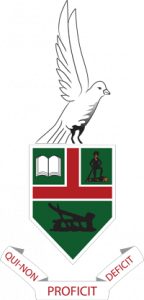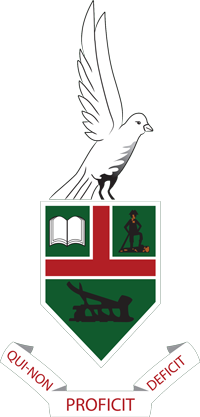TECHNOLOGY
There are three main strands in the Technology Department Curriculum:
– Technological Practice
– Technological Knowledge
– Nature of Technology
At Waimate High School, our students develop their knowledge of Technology through Hard Materials, Digital Technologies and Food Technology/Home Economics.
TECHNOLOGICAL
PRACTICE
Students develop a range of outcomes, including concepts, plans, briefs, technological models, and fully realised products or systems. Students investigate issues and existing outcomes and use the understandings gained, together with design principles and approaches, to inform their own practice. They also learn to consider ethics, legal requirements, protocols, codes of practice, and the needs of and potential impacts on stakeholders and the environment.
TECHNOLOGICAL
KNOWLEDGE
Students learn how functional modelling is used to evaluate design ideas and how prototyping is used to evaluate the fitness for purpose of systems and products as they are developed. An understanding of material properties, uses and development is essential to understanding how and why products work the way they do. Similarly, an understanding of the constituent parts of systems and how they work together, is essential to understanding how and why systems operate in the way they do.
NATURE OF
TECHNOLOGY
Students learn to critique the impact of technology on societies and the environment and to explore how developments and outcomes are valued by different peoples in different times. As they do so, they come to appreciate the socially embedded nature of technology and become increasingly able to engage with current and historical issues and to explore future scenarios.
HARD MATERIALS
Our workshop is well equipped, and is a thriving hub of industry and creativity on a daily basis.
Hard Materials is taught as part of our Technology Programme to all Year 7 and 8 students. For many of our younger students, Hard Materials is their first experience using tools to create something with their own hands. For Year 9 and 10 students, Hard Materials is taught through optional modules.
Our junior students create items such as spatulas, chopping boards, pencil boxes, wooden tool boxes, toy boats and planes, acrylic phone holders and bird houses.
Senior students are taught BCATS (Building Constructions Allied Trade Skills) unit standards, which have proven to be very successful in not only gaining a high number of credits but also producing wonderful take home projects such as cabinets, chairs, tables and ladders. Many of our senior students who have left school are now local tradesmen in the district and beyond.
DIGITAL TECHNOLOGIES
Year 7 and 8 students are taught Digital Technologies as part of their Technology Programme. Students are able to carry on their studies in Year 9 and 10 as an optional module.
By the end of Year 10, students will have gained knowledge and skills to enable them to follow a predetermined process to design, develop, store, test and evaluate digital content to address a given issue.
Students will have gained experience in: basic game making, design for brochures, posters, presentations, dismantling and reassembling a computer, robotics, animation, spreadsheets, word processing skills, and working together.
By the end of Year 13, students will design and develop fit-for-purpose digital outcomes, drawing on their knowledge of a range of digital programs and systems whilst considering social, ethical and end-user considerations.
Digital Technologies at senior level will further develop students’ knowledge and skills in data management, programming and design, and Computer Science concepts.
Digital Technologies can take students into a world of high paid, high demand and rewarding careers. Examples of these can be in web development, software engineering, software analysis, game developers, animation creators, computer aided design and manufacturing.
FOOD TECHNOLOGY/
HOME ECONOMICS
The Food Technology classroom is an exciting space to explore culinary flair and test ingredients for various outcomes to solve a problem.
Year 7 and 8 students learn to prepare various cooked and baked products while learning basic skills, including how to be safe and hygienic in the kitchen. Students will have the opportunity to continue with Food Technology as an optional module in Years 9 and 10.
By the end of Year 10, students will have learned how to be creative in finding solutions to food related problems by designing products, researching flavours, experimenting with basic food components such as raising agents all while using the design process. They will have learned how to make foods such as lunch dishes, biscuits, pasta meals, scones etc.
Senior level Food TechnologY/Home Economics students are presented with many avenues of learning. Through Processing Technology and Home Economics Achievement Standards, students can gain credits contributing to University entrance. Food products are researched, data collected, experimented with, photographed and recorded using technological devices.
Seniors will also have Star courses such as Front of House/Cookery, Barista Training and Hospitality Professional Chef opportunities to take advantage of to gain unit standards. These courses are organised by the school through the ARA Institute of Canterbury, Timaru and the Learning Place, Dunedin. These are run in partnership with the Polytechnic where students are tutored and assessed in Timaru or on site at Waimate High School.
Food Technology/Home Economics can open many rewarding career opportunities in scarce skills employment areas locally and internationally. Examples of these are Laboratory Food Technology, Restaurant/Cafe Chef, Hotel Manager, Childcare, Tourism, Food Processing, Marketing/Promoting, Food Editor and Food Photography.


